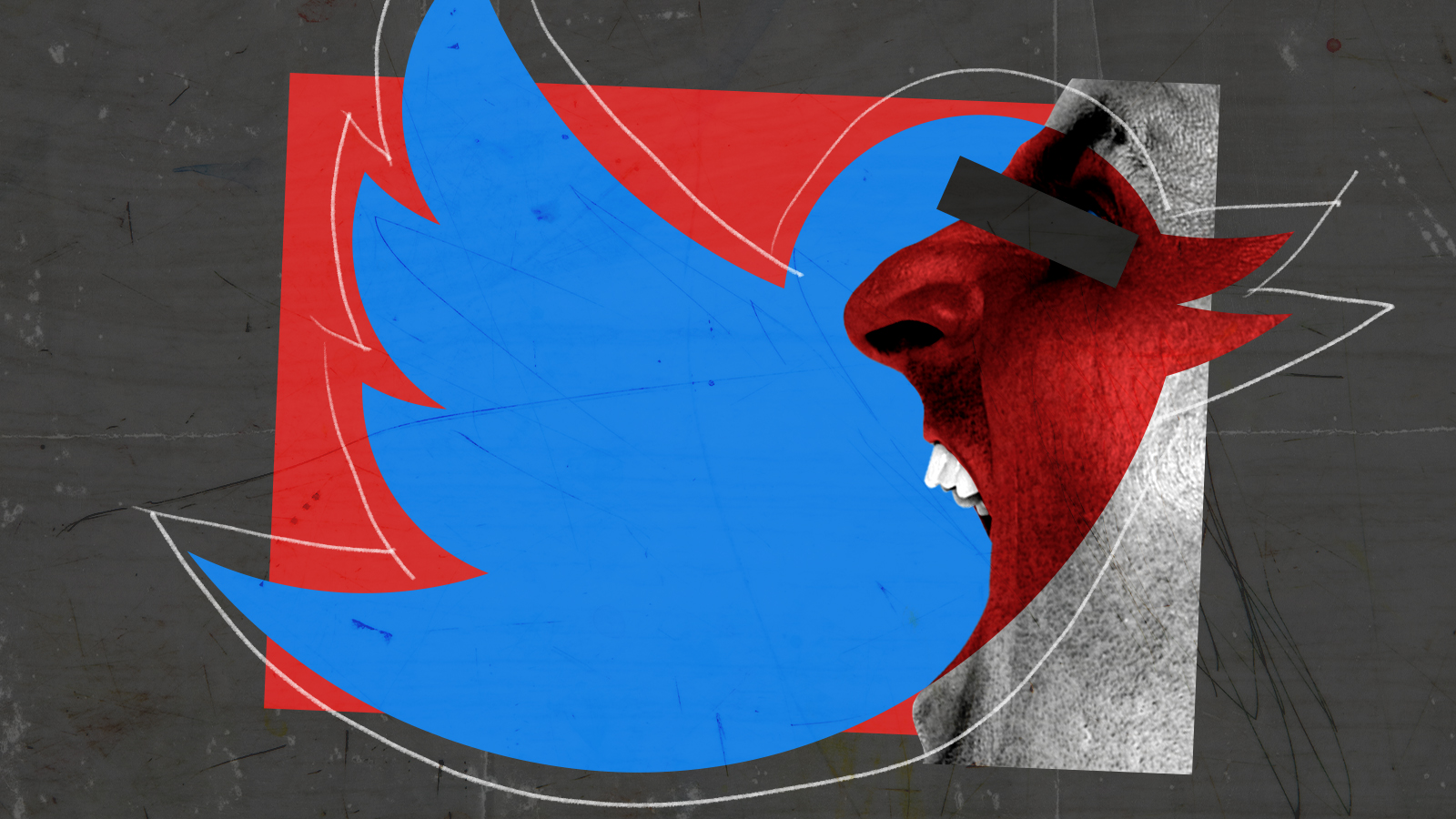How Twitter made the Waukesha tragedy even worse


A free daily email with the biggest news stories of the day – and the best features from TheWeek.com
You are now subscribed
Your newsletter sign-up was successful
The verdict in the Kyle Rittenhouse case had nothing to do with the deadly SUV rampage at the Christmas parade in Waukesha.
That's an easy assessment to render now that Darrell Brooks has been charged with multiple counts of first-degree homicide for Sunday's attack that killed six people and injured more than 60 others. Brooks was free on bond after allegedly trying to run over another woman — she says she's the mother of his child — earlier this month. He appears to be a menace, but politics don't have much to do with that.
In the first fraught hours on Sunday, though, social media was awash in speculation that Friday's "not guilty" verdict for Kyle Rittenhouse was somehow connected to the attack. Comments came from the right: "After the widespread hateful reaction to the Rittenhouse verdict & dog whistle calls to radical BLM ground troops by the mainstream media, Democrats, and even the President of the United States, we must ask if they incited the mass murder in Waukesha, WI," tweeted Rep. Marjorie Taylor Greene (R-Ga.). And it came from the left: "The blood of Kyle Rittenhouse's victims is on the hands of Wisconsin citizens, even the children," wrote Mary Lemanski, the now-fired social media director for the DuPage County Democrats in Illinois. Those were just the highest-profile examples.
The Week
Escape your echo chamber. Get the facts behind the news, plus analysis from multiple perspectives.

Sign up for The Week's Free Newsletters
From our morning news briefing to a weekly Good News Newsletter, get the best of The Week delivered directly to your inbox.
From our morning news briefing to a weekly Good News Newsletter, get the best of The Week delivered directly to your inbox.
Thanks to Twitter, misinformation and misguided anger spread faster than the facts.
That's not entirely a new phenomenon: After Timothy McVeigh bombed a federal building in Oklahoma City in 1995, Muslims wrongly came under scrutiny until it became clear the terror was home-grown. It's just a human fact that people start looking for explanations when unexpected violence disrupts their lives, and that in the absence of evidence they'll conjure up narratives that later look foolish or worse.
But social media supercharges the process, enabling — even encouraging — masses of people to coalesce around bad ideas and amplify them to potentially thousands of people in mere moments. And in a time like this, when very online Americans are ready to go to (metaphorical) ideological war at the drop of a hat, that cascade of speculation often ends up reinforcing our divisions, creating a self-reinforcing wheel of rage that too often has little to do with reality.
A few mean-spirited people revel in all of this: As of Wednesday morning, Greene was still falsely promoting a Waukesha-Kenosha connection. The rest of us should be a little more cautious with our takes and refrain from posting in the first hours after a disaster unless there is real, verifiable information to share. Otherwise, we should learn to shut up.
A free daily email with the biggest news stories of the day – and the best features from TheWeek.com
Joel Mathis is a writer with 30 years of newspaper and online journalism experience. His work also regularly appears in National Geographic and The Kansas City Star. His awards include best online commentary at the Online News Association and (twice) at the City and Regional Magazine Association.
-
 What to know before filing your own taxes for the first time
What to know before filing your own taxes for the first timethe explainer Tackle this financial milestone with confidence
-
 The biggest box office flops of the 21st century
The biggest box office flops of the 21st centuryin depth Unnecessary remakes and turgid, expensive CGI-fests highlight this list of these most notorious box-office losers
-
 The 10 most infamous abductions in modern history
The 10 most infamous abductions in modern historyin depth The taking of Savannah Guthrie’s mother, Nancy, is the latest in a long string of high-profile kidnappings
-
 Big-time money squabbles: the conflict over California’s proposed billionaire tax
Big-time money squabbles: the conflict over California’s proposed billionaire taxTalking Points Californians worth more than $1.1 billion would pay a one-time 5% tax
-
 Did Alex Pretti’s killing open a GOP rift on guns?
Did Alex Pretti’s killing open a GOP rift on guns?Talking Points Second Amendment groups push back on the White House narrative
-
 Washington grapples with ICE’s growing footprint — and future
Washington grapples with ICE’s growing footprint — and futureTALKING POINTS The deadly provocations of federal officers in Minnesota have put ICE back in the national spotlight
-
 Trump’s Greenland ambitions push NATO to the edge
Trump’s Greenland ambitions push NATO to the edgeTalking Points The military alliance is facing its worst-ever crisis
-
 Why is Trump threatening defense firms?
Why is Trump threatening defense firms?Talking Points CEO pay and stock buybacks will be restricted
-
 The billionaires’ wealth tax: a catastrophe for California?
The billionaires’ wealth tax: a catastrophe for California?Talking Point Peter Thiel and Larry Page preparing to change state residency
-
 Trump considers giving Ukraine a security guarantee
Trump considers giving Ukraine a security guaranteeTalking Points Zelenskyy says it is a requirement for peace. Will Putin go along?
-
 Bari Weiss’ ‘60 Minutes’ scandal is about more than one report
Bari Weiss’ ‘60 Minutes’ scandal is about more than one reportIN THE SPOTLIGHT By blocking an approved segment on a controversial prison holding US deportees in El Salvador, the editor-in-chief of CBS News has become the main story
